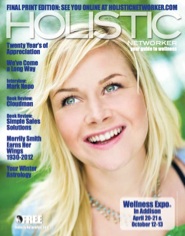 In Fortune 500 boardrooms the buzzword of 2011 has certainly been “disruption”. Corporate executives watch in horror as the Internet transforms entire industries in favor of quicker—more connected—upstarts. The seismic shifts that have hit the music, news, entertainment, and publishing industries will be the topic of business school case studies for decades to come. More critically, how is technology disrupting the the job market?
In Fortune 500 boardrooms the buzzword of 2011 has certainly been “disruption”. Corporate executives watch in horror as the Internet transforms entire industries in favor of quicker—more connected—upstarts. The seismic shifts that have hit the music, news, entertainment, and publishing industries will be the topic of business school case studies for decades to come. More critically, how is technology disrupting the the job market?
Unemployment rates tell the tale, yet more staggering than flat job growth is the following statistic: Between 1990 and 2008 only 600,000 new, “tradable,” U.S. jobs have been created. A tradable job, like customer service or factory work can be done anywhere on earth. Unlike local jobs such as lawn-mowing and burger-flipping, tradable jobs can be done in a remote factory or any province with an internet connection.
I believe we are at a crossroads in society: just as the industrial age replaced animal labor (“horsepower”) with mechanical devices, we are rapidly developing information technologies that replace human labor (“brain power”). How do we adapt to a world where entire industries and job categories are morphing at an accelerating rate?
Our education system has been designed to train obedient workers for industrial jobs where two answer categories exist: “correct” and “incorrect”. Imagine the little red schoolhouse, children sitting in rows, listening to a teacher present a lesson on a blackboard. Before the internet, teachers controlled access to information. In our hyper-connected world, students have easy access to more resources than their teachers. With iPhones and Wikipedia, information is literally in the palm of a student’s hand. Today, we have the opportunity to learn from YouTube videos, iTunes U, and specialized sites like Khan Academy and Udemy.com.
To remain relevant in the job market, we must embrace becoming a life-long learner. We must embrace the rapid advances that are sweeping our way of life, and learn to play in the new world of interconnected real, augmented, and virtual realities.
The opportunities to follow your heart and create a new career have never been greater. Writing, designing, organizing, and sharing your passion with the world has never been easier. Open your mind to new skills and you will be in for the ride of your life!
About Tony Cecala
Tony is a business strategist. He publishes the Holistic Networker and produces the Wellness Expo. In his spare time he reads about technology and the mind.
- Web |
- Flickr |
- More Posts(165)











Your editorial is absolutely correct. I might add to the second-to-last paragraph the following sentence:
“To remain relevant in the intellectual market, we must not restrict our students (K-12 and beyond) from using mobile devices or accessing particular websites, and instead we as educators – inside and outside of the classroom – must model/guide/teach our students to take advantage of these resources and learn from and contribute to the global knowledge network that exists and is constantly evolving online.”
Excellent article — thank you!